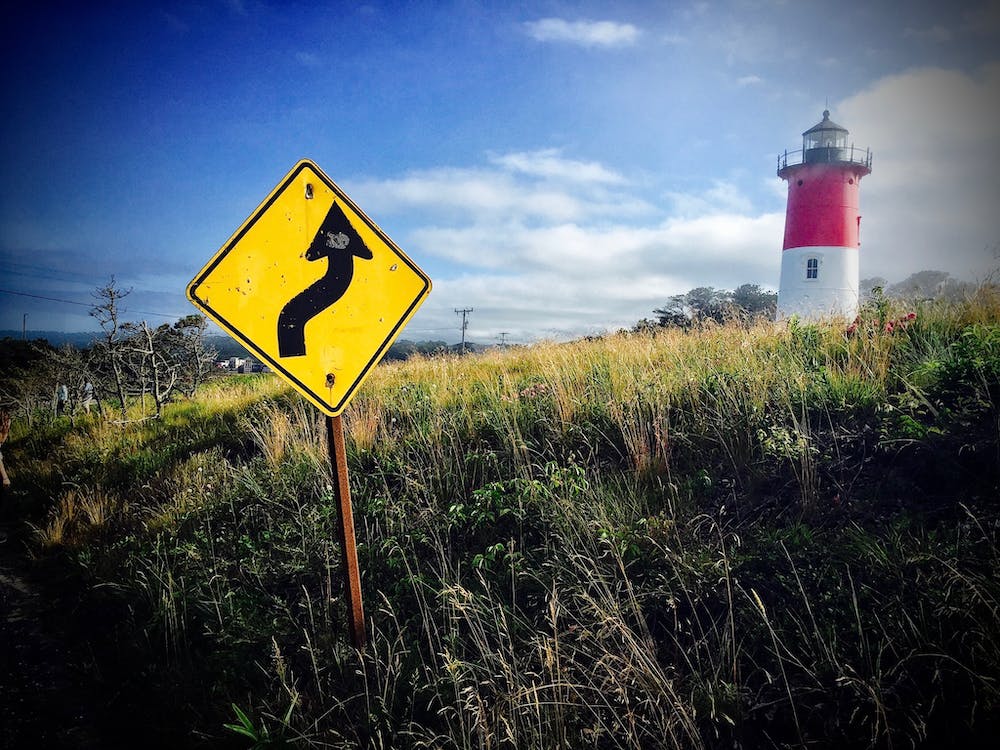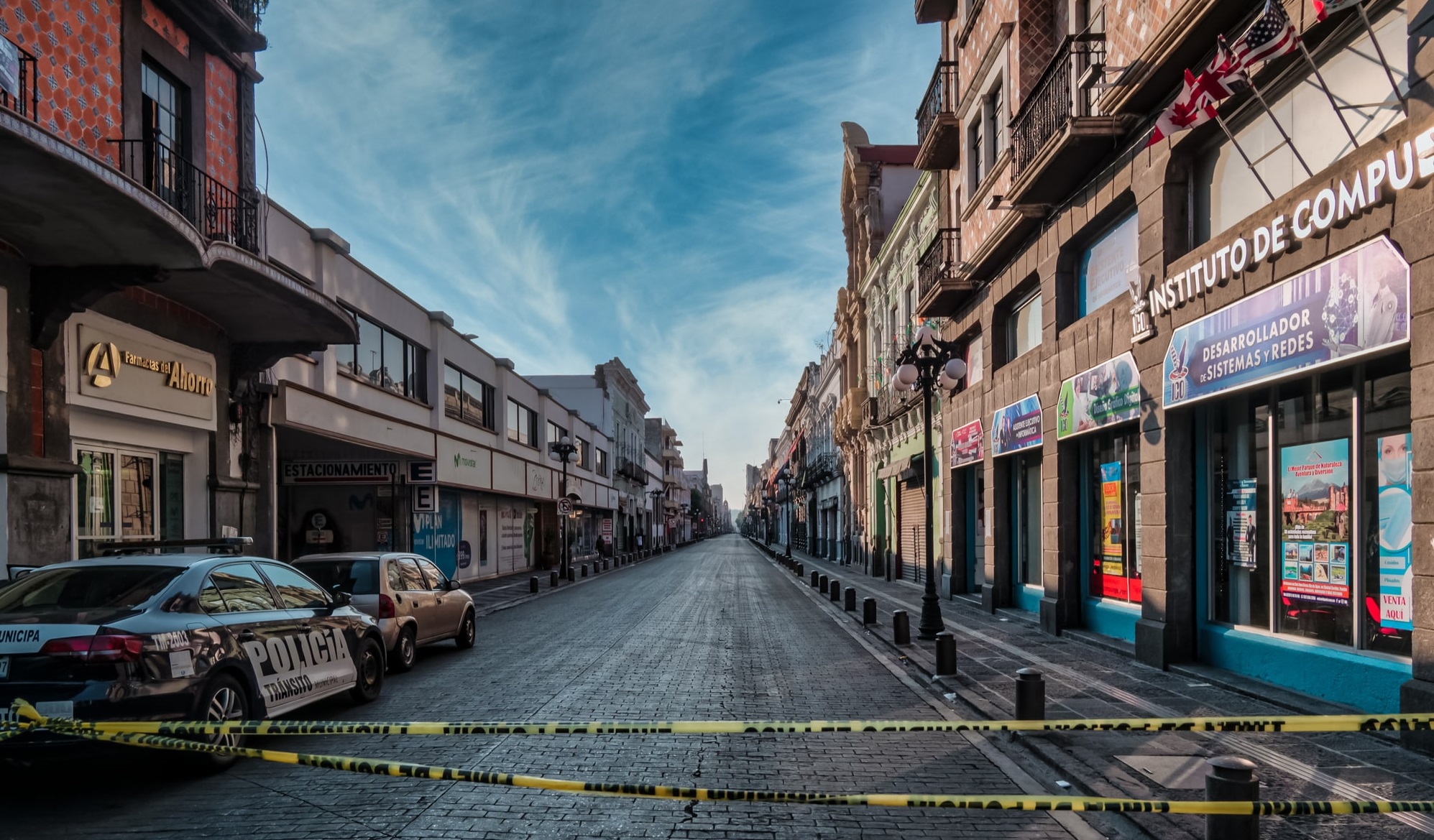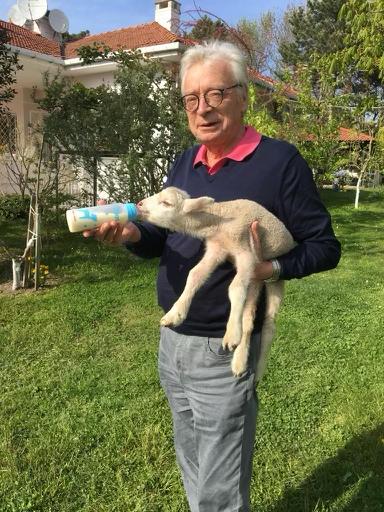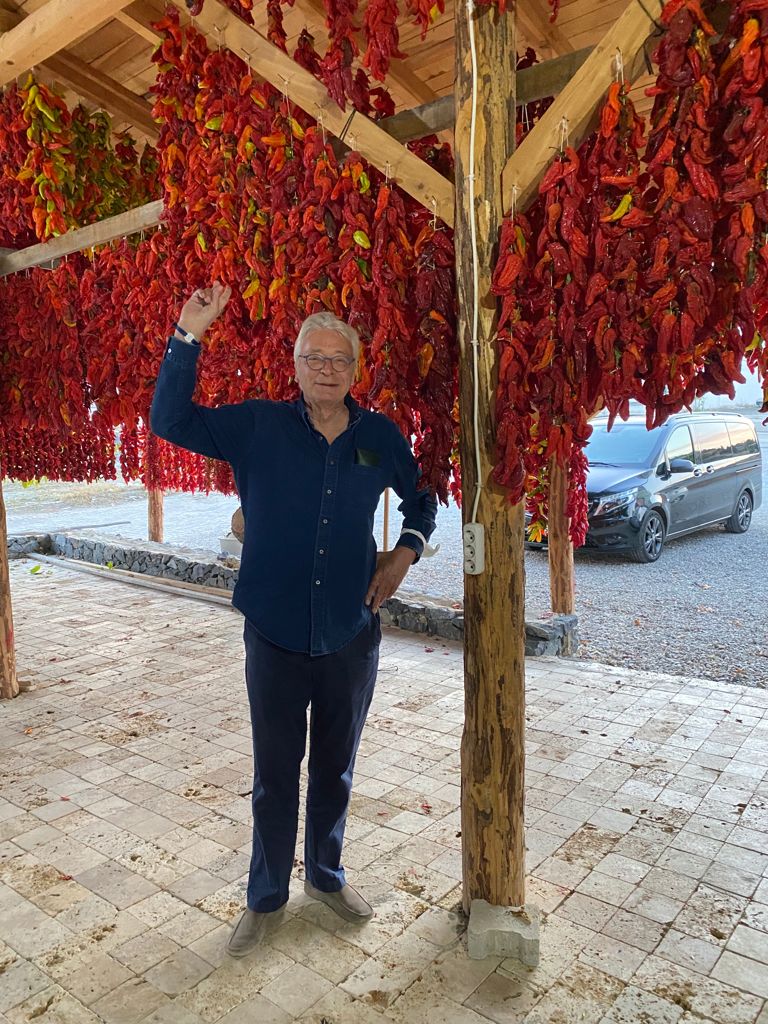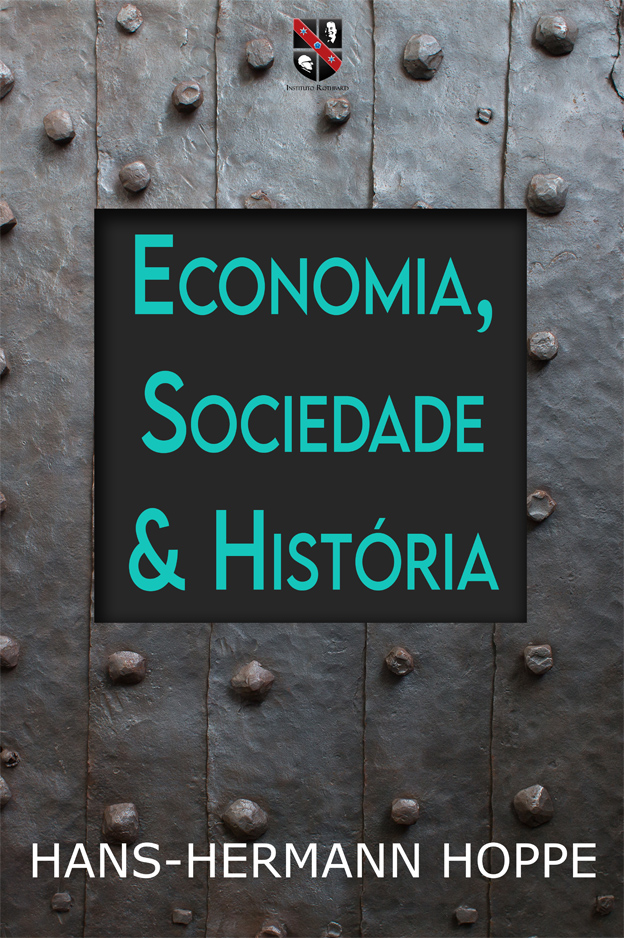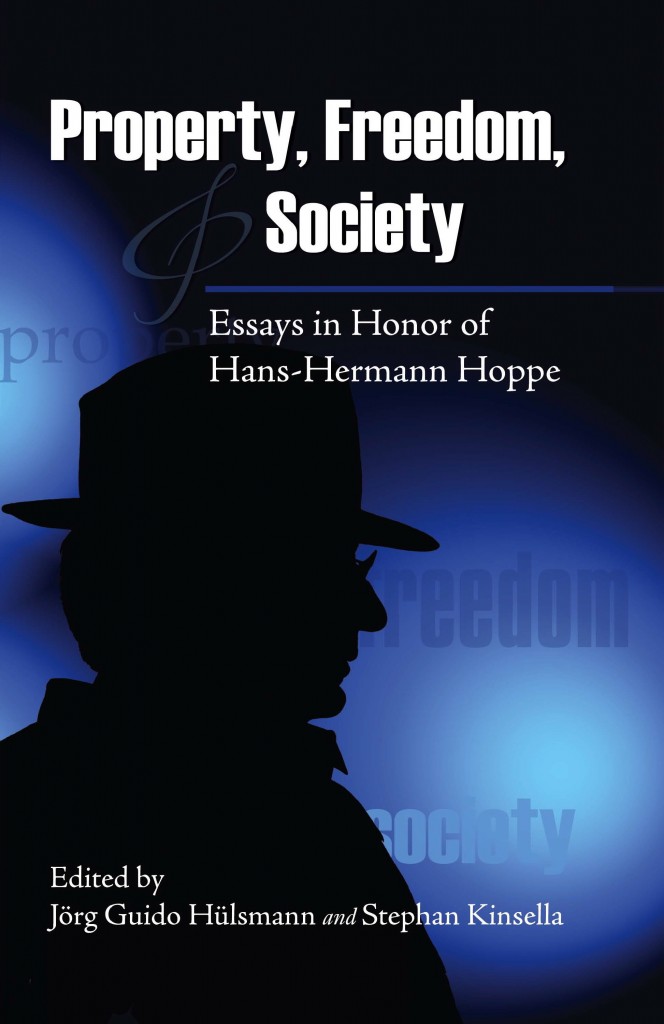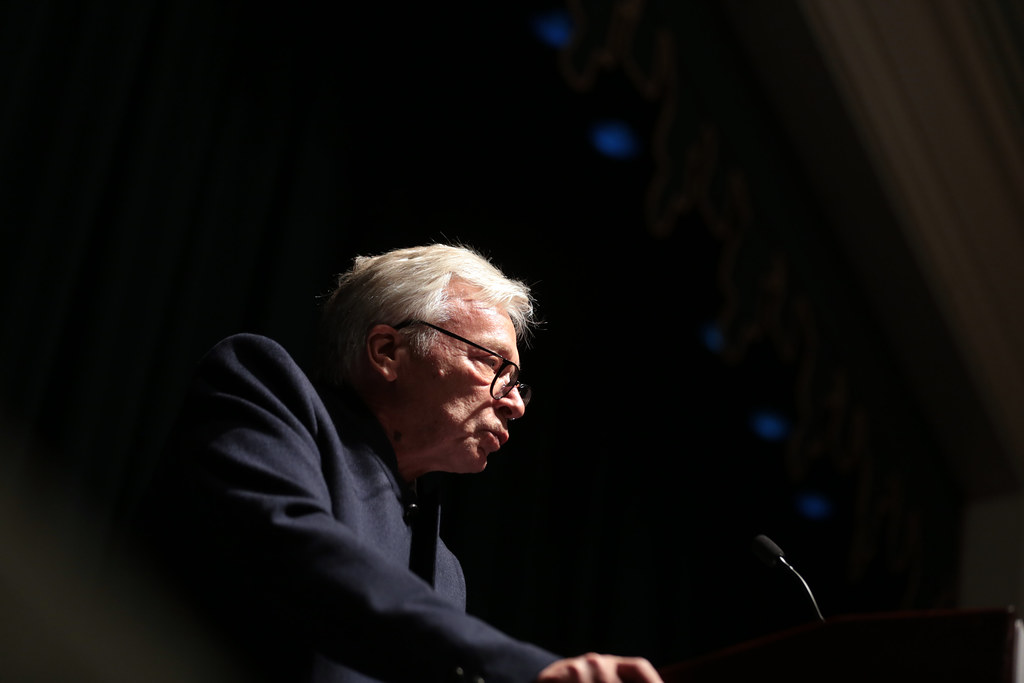“The Ethics and Economics of Private Property,” Mises Daily (Oct. 15, 2004; republished Feb. 24, 2022)
Archived comments from the Mises blog:
Article right on the mark about property rights. The only problem I have with it is when two parties come in conflict over violation of property rights. Say a powerplant produces large volume of mercury pollutants and these fumes are deposited downwind onto a person property. The owner of the property doesn’t care that his property and person are being contaiminated. The owner then sells the property to a new owner. The new owner, who does care about such things, doesn’t want his property right violated anymore. The power producing plant much stop such violations, or the new owner property rights are not absolute. The flaw in the article that states that who ever was first, and they have a “right” to pollute, negates the idea of the property rights of another individual were being violated in the first place.
Curran, your given situation brings up the problem of “traditional right of way”. A new owner is held to allow the same use by the community that the previous owners allowed.
I don’t know if there is a practical answer in the “common law” tradition, but the up front answer is for all such information to be made available to any prospective buyer, and therefore the prior owner will take better care of things in order to get the most money for their property when sold. I know I would consider it fraud if I bought property with such an easement without knowing it was there.
I have heard Curran’s argument before, and am always struck by the same thought: who in his right mind would knowingly buy a property which had been subjected to years worth of pollution if he was anti-pollution? The scenario doesn’t make any sense logically speaking.
Phaedrus
In Curran’s example, if the factory began polluting in a fixed area before any other property was established in that area, then any future owners who established property in the affected area would have to tolerate it. In fact the act of polluting the unowned area probably should be viewed as taking posession of the area; the factory would then have ultimate say in allowing or disallowing future homesteaders to take posession of property in the region, and would have ultimate say in setting out conditions on the transferred property (such as requiring new owners to tolerate unlimited future pollution from the factory). The property rights of homesteaders in the pre-polluted area
If there were already homes established before the factory was built, or if the factory began producing pollution in a larger area, so that pollution was falling on previously unpolluted homes, then the factory would be stepping outside its rights and onto the rights of others, and would be liable for damages to those parties.
Also, if the factory was established after the homes, but the people tolerated the pollution initially, the people would still retain the right, absent any other contract, to claim damages at any time. That right would transfer with sale of any property, and if the new owner wanted to take action against the factory, it would be his right. The factory would have to weigh that risk of future non-tolerance when choosing to locate in that area, when choosing to negotiate pollution rights from the established homeowners, and when choosing to pollute to begin with.
Pollution does not resolve the paradox, simply shifts it.
First, I generally agree with the principle of original ownership for establishing property rights, but not that the principle is sufficient to define all morality nor that it doesn’t require a fair amount of further exploration in the Natural Law to define how much is owned.
If I dig a pond for some flowers next to and dependent on the river, do I now own the river, tributaries, and springs all the way to the origin insofar as it is required to maintain my pond?
Lets say there is a new land opening up. I rent a military size cargo plane and drop popup “Mine!” signs over thousands of square miles. Do I own it? Who defines “use” or “improvement”. OK, I drop some nice flower seeds.
Better yet, I drop a bunch of really smoky torches along a line near the upwind end. Now I’ve polluted thousands of square miles, so I now own those.
Lets say I die the day after (but having mailed my claim, which is found valid) and never do anything else. My will says the estate is to do nothing with the property. So I now own it forever, even though the signs will eventually rot, and/or the smokepots will go out, and the land will never find another use. Or has no one else noted that we sometimes die? What happens to ownership beyond my span of years? Is there a requirement of even maintainence much less some even trivial continued improvement?
Also Hoppe’s system would have the original owner maximize obnoxiousness. If I know that if I don’t continually blast out loud dissonant noises, I will lose the right to, and if I don’t send toxic pollutants across the entire area, I’ll lose that right, my incentive is to put up as many obnoxious speakers and toxic smokepots even if there is otherwise no benefit to me.
Another problem is the contradiction between “physical damage” and not counting value. Lets say some weed-killer flows over to your lawn and kills the dandelions. Did I cause damage or improve the land? There may be a tresspass tort, but how do we measure it? You can kill my dandelions anytime you want if it is tit-for-tat. Otherwise the value of the loss must be established.
Maybe I consider you ugly, and I didn’t have to see you when I originally owned the land – can I demand that you not be visible nor block my view of lands beyond? And that carbon dioxide you keep emiting must stop! At some point, it becomes absurd – the law needs to draw a line between ordinary or common conduct and nusiance. It is not that it can’t be drawn, but that “who’s on first” has by itself no answer.
In a post below I noted that speaking is an act. That can damage the value of property. This generally requires the act to be malicious – the specific intent is to damage the value of you or your property.
Also I will disagree with a subtlety in the characterization of “Self-Ownership” by Aquinas and the other Christian thinkers. Our minds (will, soul, spirit) and bodies are granted by God and under our guardianship – we are responsible for them. The difference is that God maintains a Lein. If you don’t, then you don’t deny slavery, as long as I am the one selling myself into slavery. Or I am selling my will, vote, body, jury finding, respect for property rights, etc. The “self” is that with the right and ability of ownership, not just another thing owned.
If I could use your body before you could take ownership (unless you agree with l4l.org) – say with an electronic implant or hypnosis or maybe just cutting out some cells like embryonic stem cells, Do I now own your body even if your “soul” shows up later?
I agree with TZ, I don’t think spewing pollution onto land—damaging property but not developing it, in other words—grants one any kind of ownership.
Property rights have no meaning unless you have utmost respect for the property rights of others. And that means no pollution of anything beyond your own immediate property. And I don’t think simply “being there first” gives one ownership over land. The earth is a trust to be divided among all people present and future; it’s not something any of us created with our own effort, nor is it something we can replace if we destroy it.
TZ is right: polluting unowned land, making it unsafe or uninhabitable by one means or another does not confer ownership. Homesteading an acre of land and then installing automatic machine guns to spray the adjoining area’s with bullets is no legitimate way to appropriate those areas.
Rothbard and Hoppe surely agree too: such activities do not come near to anything resembling homesteading.
Do such activities establish a weaker form of property (other than ownership)? After all, their point is that an “easement” is established.
However, talk about “an easement” sounds like a mere evasion.
How would a [libertarian] judge look at the matter? I suppose he would treat it as a question of nuisance, spill-over or neighbourhood effect, not as a question of property rights. Symmetry would be a relevant consideration. I do not think a judge would grant a newly established pig farmer his claim against the one who was there first: “Your pig smells no better than his.”
In other cases, if the polluter for a while profited from the fact that neighbouring land was unoccupied, without bothering to homestead sufficient land to keep the nuisance on his own property, one may wonder why he should be granted the right to enjoy that advantage indefinitely. Why should we not say that he gambled that no one would come to appropriate the land next to his — gambled and lost? I think a judge could properly rule that a new homesteader should be granted the right to force the already established owner to bring down the nuisance / pollution to some acceptable level.
Noise pollution and stench are transient phenomena, leaving rubble and toxic stuff are not.
This raises the interesting question of clean-up costs. I do not continue to own the things I throw away, yet why should this mean that I am no longer responsible / answerable / liable for the harm that they do? I exposed others to the harm by letting those things get out of my control.
I am not formulating any ‘hard rules’ here. Such cases must be judged individually, on their merits, taking into account all the relevant particular information. That is a job for judges, not for legal theorists. A sensible Austrian economist should not presume to have an economic theory that allows us to dispense with entrepreneurial judgment. For the same reason, a libertarian should not presume to have a a theory of law that leaves no room for the judgement of judges.
If I wanted to establish an airline which would fly over a part of the world which to date never had air traffic, no doubt it would bother many people under the flightpath. What would a libertarian propose I, the prospective business do? The prospect of having to individually enter into contracts with everyone under the flight path would kill any such idea I suppose. Or could one argue that I am homesteading that airspace or that those underneath it do not own the silence they previously enjoyed? Not trying to be awkward just not sure how logically they could approach this.
Jonathan,
Homesteading airspace and owning silence are not helpful concepts here. The problem is nuisance or spill-over effects. Some of these must be tolerated, up to some level, if social life (peaceful co-existence and interaction) is to be possible at all. Others, and all above some level, cannot be tolerated above some level, if social life is to be possible at all.
The issue for libertarians is whether those instances and the corresponding levels of tolerable spill-over effects should be determined by political means (via a monopolistic government or its monopolistic court system) or by economic means (negotiation, contracting, assisted if need be by technical and judicial experts chosen by those who are directly involved.)
A libertarian judge must hear all sides; he cannot escape his peculiar responsibility, which is to define acceptable standards of behaviour for the case before him and to justify those standards with arguments that are pertinent to the case. Of course, there always will be people who do not want to agree to finding a reasonable modus vivendi. There will be those who have agreed to let a judge sort out the case and then refuse to honour the standard he has defined merely because it is not what they want (without showing that his arguments were wrong). Such people may pose problems, even become dangerous, but then libertarianism — or should I say, paleolibertarianism? — is not about abolishing human nature. It about promoting standards of reasonableness within a framework of respect for persons and their property.
Here is one escape from the problem I proposed – despoiling the land decreases its market value (I’ve already established if you can have torts for tresspass or physical damage, you must be able to set a value).
This I’m just throwing out, so it might have problems of its own, but it solves the immediate paradox.
If my overall action adds significant value to a property (or in the case of mining, extracts it), I may claim title. If my action(s) effectively despoil property, I don’t.
I.e. if I have to ruin 5 acres entirely to get less than a 500% increase on each acre I develop, I won’t get ownership and may have to compensate later owners. I would probably set the threshold higher (a 2:1 ratio or something), and require a minimal increase “per acre” to prevent my “dropping ‘my property’ signs from planes” scenario.
For the airline, I think the company might owe compensation for the devaluation of the property now that there was noise. This would also have to be a market value, and include a punative charge because if I really don’t like it and have to move (more than the average person who would set the “market value”), it would be more damaging to me. There would be incentive to minimize noise, but prevent “heckler’s vetos”.
Another example is a group of properties on a floodplain. A dam or levee would be a public good since it would prevent flooding all properties and increase their value – not just those who wanted it. At some high threshold (90% ownership or acreage), a bond could be imposed that would pay for the flood control system but only be due when the heckler wanted to sell his property, and would be effectively paid for by the increased sales price; if the price didn’t increase sufficiently there would be no incentive to build the flood control system. It is not that I desire such impositions, as I think they are violations of rights in the purest sense, but progress ought not to require unanimity. Easements are one of those relief valve mechanisms. I don’t know if these are the best mechanisms, only that some mechanism is required.
The Earth (or Nature) is a trust in the sense that it does not have zero value before someone does something to it. I’ve made that point in other ways saying our bodies and souls (Life and Liberty) also function more as a trust than outright ownership, i.e. you cannot sell yourself into slavery since your liberty is entrusted to you (I’d say by my creator, but use whatever construct you like). Similarly, Life (which I measure from conception to natural death) is something else that cannot be abrogated. It is still murder even if I ask or pay you to kill me.
Some of this derives from teleological ideas – what is the purpose or end of Liberty, or property ownership. I don’t see these so much as ends in themselves which I why I think in terms of guardianship or stewardship and not merely ownership.
Property can be resold (if not despoiled). I don’t see the idea of improvement creating ownership as conflicting as trusts normally increase in value. Doing so would indicate you are a good guardian and ought to continue.
(I’d grant very wide latitude here as to what is considered “improvement” including preserving things in a natural state – finding a really nice acre, different from the hundred others and preserving its state is in a way “improving” it).
I am confused about the difference between physical property and intellectual property. Rothbard seemed to imply that all issues of “property rights” are derivatives of some fundamental squatters’ rights pertaining to physical land/resources.
Isn’t the idea of “I ALREADY own that property” the idealism that led to the current plague of patent bullsh*t?
And, without patents, what would keep me from saying to everyone “I’d like to see you PROVE that you already own that property.”
btw: I disagree that forming tactics to deal with a gorilla on a desert island would not interject questions of morality. The argument of the article seems to be “If some living thing can’t reason with me, I can do with it whatever I wish.” A person could TRY to do whatever they wish with a non-human, but the hypothetical gorilla might object with an “argument” that uses no language other than brute strength.
I’m new to Libertarian ideals, so this question may seem sophmoric. Why is it reasonable to place more value in the property rights of a “first owner”, than in the property rights of subsequent “neighboring owners”? It seems to contradict the idea that every property owner has exclusive rights. In my opinion, the timing of ownership is irrelevent to the rights of the owner. The only real test is whether property has been damaged. If a factory owner polutes the surrounding area without claiming that area and then another owner claims that area, the simple fact is that further polution to that property is damage. The factory owner can protect themselves by either acquiring the property, limiting polution to a non-damaging amount or contracting with downstream owners for polution rights. Otherwise, the future rights of the factory neighbors are being altered without compensation.
Dave,
The alternative would be allowing later owners to infringe on the rights of existing owners. For example (this is ongoing in my hometown): I move into a neighborhood next to a hospital, which I know full well is a trauma center that operates a medical evacuation helicopter 24 hours a day to airlift seriously injured people to the hospital. Do I then have a right to demand that the hospital stop doing so, since the comings and goings of choppers interfere with my peace and quiet, even though I knew they were there when I moved in? What rights do I have that are being altered? Should the hospital owe me under these circumstances?
Lisa,
The difference here is that noise (at least at the levels of a trauma center) is not a property damaging polutant. If the hospital had been surrounded by unclaimed property that they routinely dumped medical waste on and then you moved in and claimed an adjacent lot, would the hospital have the right to continue dumping medical waste on your property? Property owners, regardless of order of ownership, should be liable for the physical damage they cause to the property of others. In this sense, the question becomes what constitutes physical damage?
I think the discussion so far shows that we should not expect a one-size-fits-all rule to solve all the problems associated with nuisance, pollution, and other spill-over effects.
These are matters that should be addressed on a case-by-case basis, by a convention of all the parties directly involved or by a judge. In these cases, the particulars matter. Casting the problem in the format “Should the first owners or later arrivals prevail?” simply makes no sense.





